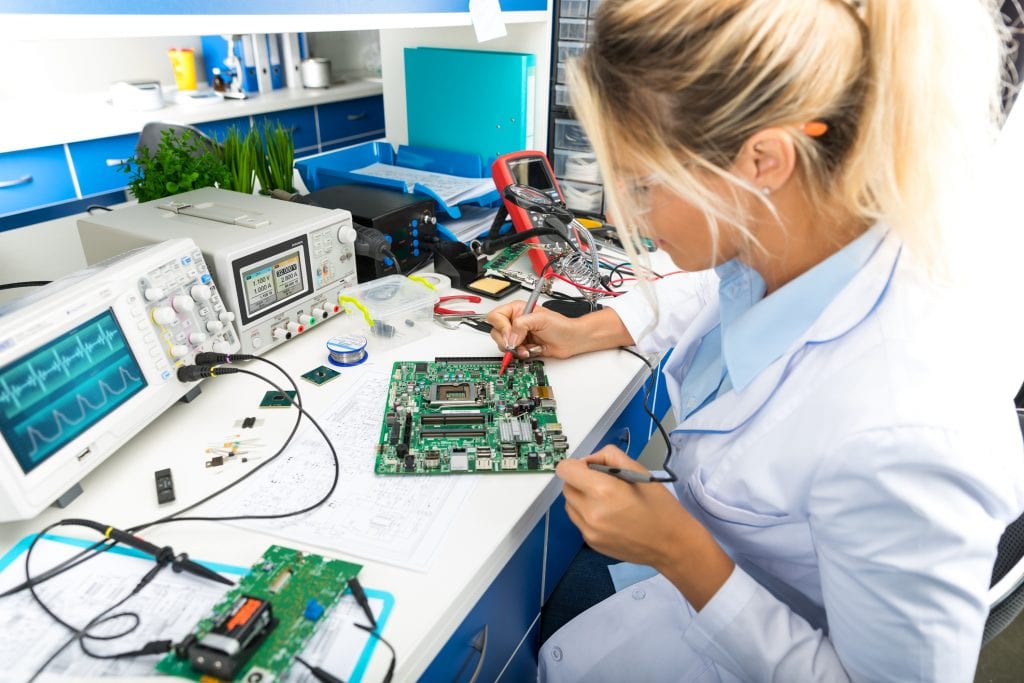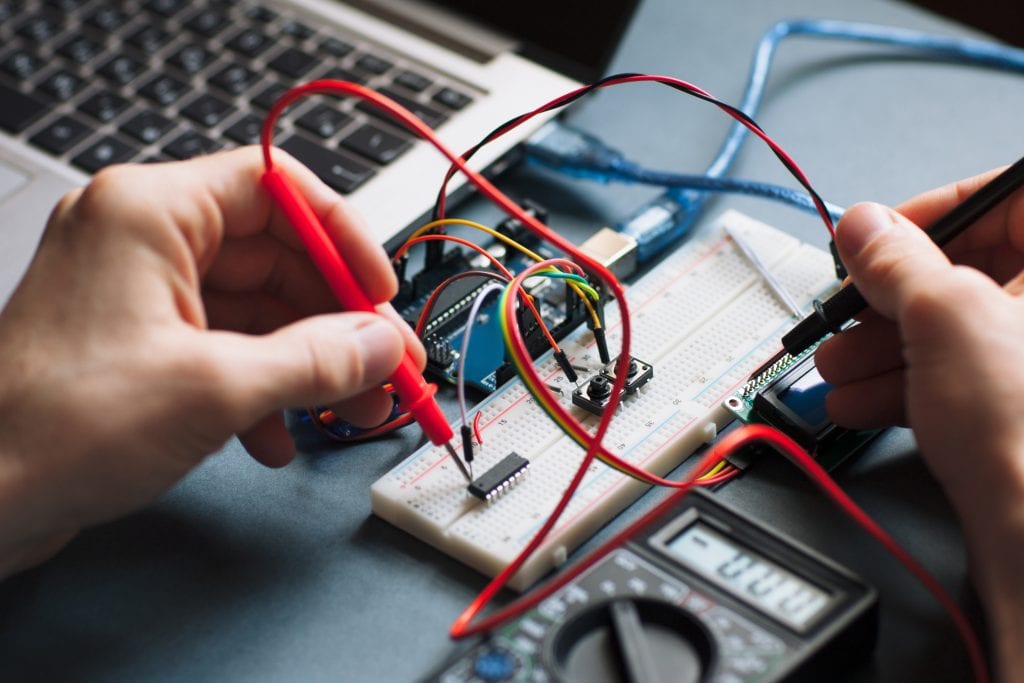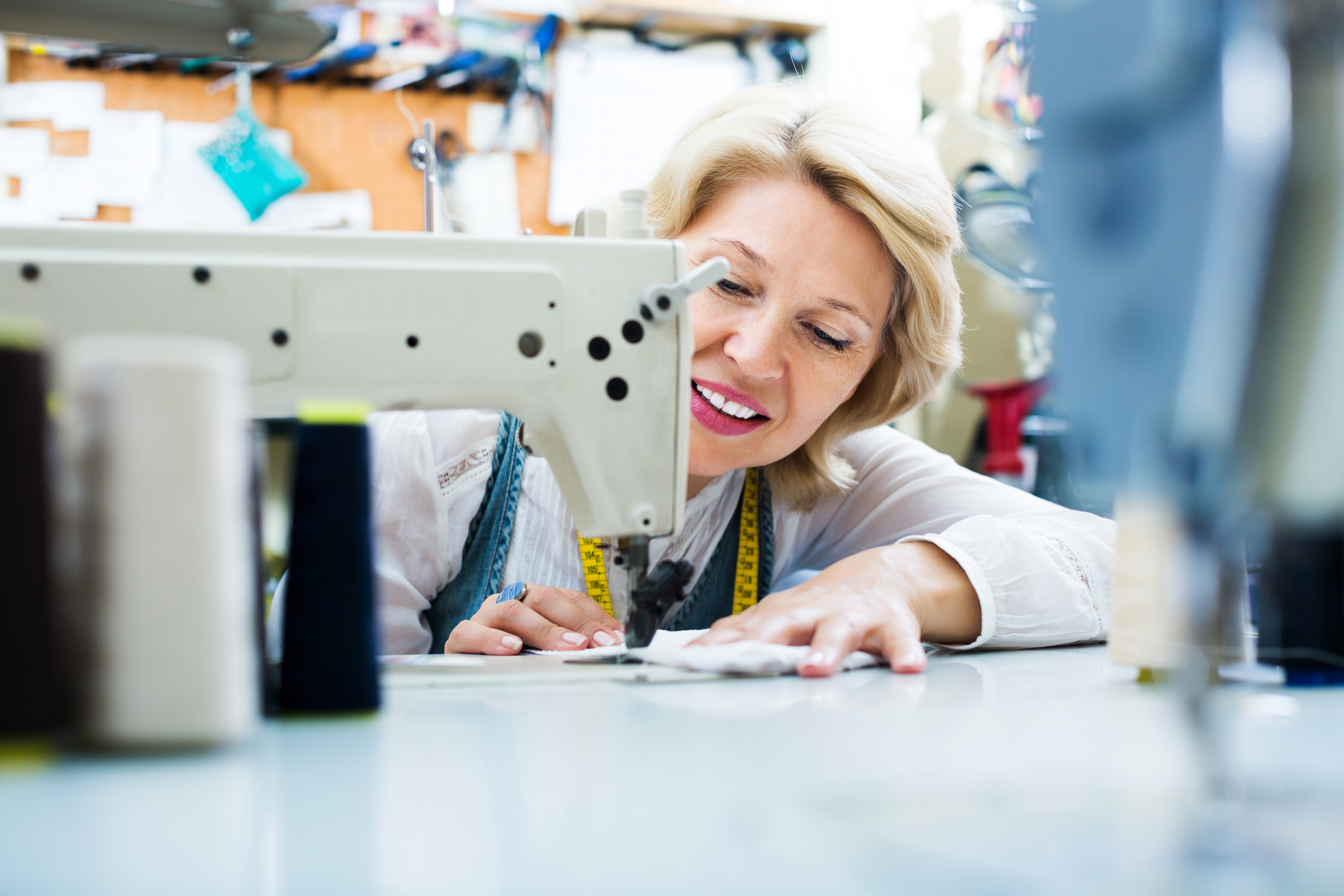It’s called the “right to repair,” a growing movement in North America and Europe that calls on manufacturers to design products, particularly electronics, that can be easily fixed instead of thrown away. Along with Repair Cafes, the movement aims to extend product life, conserve resources, create jobs, and encourage a culture that values durable and repairable goods.
Students in the Sustainable Business Leadership (SBL) Certificate at BCIT are helping catalyze opportunities here in Metro Vancouver with a capstone project that partners with Vancity Credit Union and the non-profit One Earth.
As their Project Advisor, Rosemary Cooper, emphasizes that a shift towards a circular economy has transformative potential. As a Senior Associate with the One Earth Initiative, Rosemary leads the Share Reuse Repair Initiative, which brings business, government and community actors together to create a culture and economy of sharing, reuse, and repair that supports circular innovation.
“Wouldn’t it be even better if the system changed,” says Rosemary, “so that products were made to be more durable or designed in a more modular way so that repair was easy and less costly?”
Have you subscribed? Sign-up to receive the latest news on BCIT.
Building community capacity and connection

As part of their capstone project, Farhad Raoufi and Griffin Slimkowich met with Vancity and One Earth to help the organizations understand the existing repair sector in Metro Vancouver and provide insight on how to support the repair industry and create more opportunities for residents to repair their clothing, household goods, and electronics.
Farhad and Griffin developed a survey, and collected feedback at Vancity branches as well as at several repair workshops in Metro Vancouver. They also conducted interviews of small and medium sized repair businesses to understand challenges and trends in the sector.
While they saw a variety of responses, Farhad and Griffin quickly found that electronic waste was one of the biggest areas of impact. They also learned that, while there was an overall positive attitude towards the idea of repairing goods, many respondents felt they lacked the necessary knowledge and tools.

Rosemary presented the capstone findings at the 2019 Recycling Council of BC Conference in March as part of a panel about sharing, reuse, and repair, ensuring that the students’ insights are already being put to use. Farhad and Griffin also presented their results to the Vancity Credit Union who will use what they learn to inform investment in the repair sector.
“It’s all very applied and it’s happening in real time,” says Rosemary, who sees the potential for students in the SBL Certificate program to be learning and contributing at the forefront of sustainable business.
SEE MORE: Building eco-literacy through applied ethics: enter the great debates
Nurturing a passion for sustainability
“The circular economy, cooperatives, and the principles of credit unions, were new concepts coming from a middle eastern country,” explains Farhad, whose background is in project management, having previously managed sustainability programs for a pharmaceutical company in Iran.
“The capstone gave us a good opportunity to practice sustainability concepts and network with green-minded entities,” explains Farhad, “and our instructors were amazing—they were engaging, informative, and inspiring.”
Now a volunteer Project Manager with the Society Promoting Environmental Conservation (SPEC), Raoufi wants to ensure his skills continue to advance environmental sustainability. His advice to others thinking about how they can get more involved in these issues? “If you want to start, start in your own community.”
And, for Farhad, the more people involved the better. He describes a recent image that sums up his approach, which reads “we don’t need [to wait for] perfect zero waste, we need millions of people to do it imperfectly.”
SEE MORE: What is work-integrated learning, and why is it key to getting a job?
This story is part of the monthly Countdown to Ecocity 2019 series, which highlights BCIT’s leadership in the face of today’s complex environment challenges. This initiative supports the Ecocity Standard for a Healthy and Equitable Economy, which considers how to promote and cultivate economic activities that reduce harm, benefit the environment, and bring local, equitable employment opportunities for all.
Learn more about BCIT’s role as host of the Ecocity World Summit in 2019.
